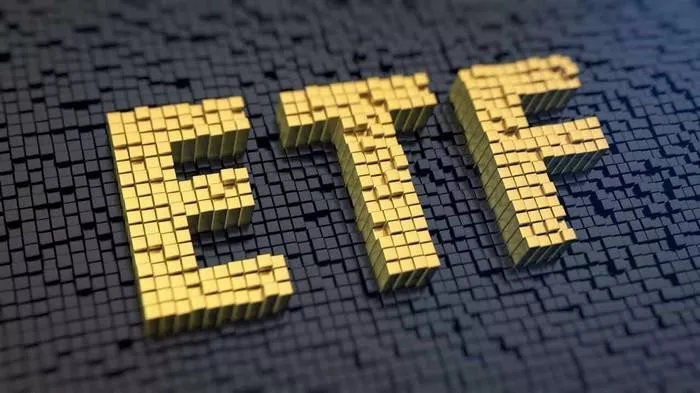Index Exchange-Traded Funds (ETFs) have gained immense popularity among investors seeking diversified exposure to various market segments. These financial instruments offer a convenient and cost-effective way to invest in a basket of securities that track a specific index. Whether you’re a novice investor or a seasoned professional, grasping the fundamentals of how index ETFs work can be pivotal in shaping your investment strategy. In this guide, we’ll delve into the mechanics, benefits, and considerations of index ETFs to help you make informed investment decisions.
What are Index ETFs?
Index ETFs are investment funds that aim to replicate the performance of a particular market index, such as the S&P 500, NASDAQ-100, or FTSE 100. These funds hold a portfolio of securities that mirror the composition and weighting of the underlying index. The primary objective of an index ETF is to provide investors with returns that closely match the benchmark index they track.
How do Index ETFs Work?
Index ETFs operate through a simple yet efficient mechanism. Here’s a step-by-step breakdown of how they function:
1. Index Selection:
The fund manager selects a specific index to track based on the investment objectives and strategy of the ETF. This could be a broad market index, sector-specific index, or thematic index.
2. Portfolio Replication:
Once the index is chosen, the ETF acquires a basket of securities that closely resemble the constituents of the selected index. The portfolio composition aims to replicate the index’s performance.
3. Weighting Methodology:
Index ETFs employ various weighting methodologies to determine the allocation of assets within the portfolio. Common approaches include market capitalization weighting, equal weighting, and factor weighting.
4. Continuous Monitoring and Rebalancing:
The fund manager continuously monitors the performance of the underlying index and periodically rebalances the ETF’s portfolio to maintain alignment with the index composition. This ensures that the ETF accurately reflects changes in the market.
5. Trading on Secondary Markets:
Index ETFs are traded on stock exchanges, allowing investors to buy and sell shares throughout the trading day at market-determined prices. This liquidity and flexibility make ETFs highly accessible to investors.
Benefits of Index ETFs
Index ETFs offer several advantages that make them attractive investment vehicles:
1. Diversification:
By investing in an index ETF, investors gain exposure to a diversified portfolio of securities, reducing the risk associated with individual stock picking.
2. Cost-Efficiency:
Index ETFs typically have lower expense ratios compared to actively managed funds, as they passively track an index. This results in lower management fees and transaction costs, enhancing overall returns for investors.
3. Transparency:
Since index ETFs aim to replicate the performance of a specific index, investors have full transparency into the ETF’s holdings and know exactly what they’re investing in.
4. Liquidity:
Being traded on stock exchanges, index ETFs offer high liquidity, allowing investors to easily buy and sell shares at prevailing market prices without the need for redemption fees or penalties.
5. Tax Efficiency:
Index ETFs tend to be more tax-efficient compared to actively managed funds, as they typically have lower portfolio turnover, resulting in fewer capital gains distributions.
Considerations for Investors
While index ETFs offer numerous benefits, it’s essential for investors to consider certain factors before incorporating them into their investment strategy:
1. Tracking Error:
Despite aiming to replicate the performance of an index, index ETFs may experience tracking error due to factors such as fees, trading costs, and imperfect replication of the index. Investors should assess the ETF’s historical tracking error to gauge its effectiveness.
2. Market Conditions:
Index ETFs are susceptible to market fluctuations and economic conditions, as they passively track the performance of a specific index. Investors should be mindful of market trends and macroeconomic factors that could impact the index’s performance.
3. Selection Criteria:
With a plethora of index ETFs available in the market, investors should carefully evaluate factors such as index methodology, expense ratio, liquidity, and historical performance before choosing an ETF that aligns with their investment goals.
4. Overlapping Holdings:
Investors holding multiple index ETFs should be cautious of overlapping holdings, as this could lead to unintended concentration risk within their portfolio. Conducting thorough research and diversifying across different asset classes can mitigate this risk.
Conclusion
Index ETFs have revolutionized the way investors access diversified exposure to various market segments. By passively tracking a specific index, these funds offer cost-effective, transparent, and liquid investment options for both retail and institutional investors. However, it’s crucial for investors to conduct thorough due diligence, understand the mechanics of index ETFs, and align their investment decisions with their financial goals and risk tolerance. With proper research and careful consideration, index ETFs can be valuable components of a well-diversified investment portfolio.
FAQs
Q1: How are index ETFs different from actively managed funds?
A1: Index ETFs passively track a specific index and aim to replicate its performance, while actively managed funds are actively overseen by fund managers who make investment decisions in an attempt to outperform the market. Index ETFs typically have lower expense ratios and turnover compared to actively managed funds.
Q2: Can index ETFs be traded throughout the day like individual stocks?
A2: Yes, index ETFs are traded on stock exchanges and can be bought and sold throughout the trading day at prevailing market prices. This provides investors with liquidity and flexibility in managing their investments.
Q3: What factors should investors consider when selecting an index ETF?
A3: When selecting an index ETF, investors should consider factors such as the index methodology, expense ratio, liquidity, tracking error, historical performance, and alignment with their investment objectives and risk tolerance. Thorough research and due diligence are essential to making informed investment decisions.


